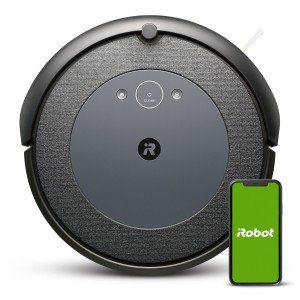The Rise of Smart Vacuums: Revolutionizing Home Cleaning
In the last few years, the development of smart innovation has changed numerous aspects of day-to-day life, and home cleaning is no exception. Smart vacuums, typically referred to as robotic vacuums, boast advanced functions such as automated cleaning patterns, scheduling through mobile applications, and combination with smart home systems. This article explores the technology behind smart vacuums, their advantages, potential downsides, and addresses some regularly asked concerns.
Understanding Smart Vacuum Technology
Smart vacuums make use of a mix of sensors, cameras, and synthetic intelligence to browse through homes. They can determine challenges, prevent dropping stairs, and efficiently map the layout of a space to guarantee comprehensive cleaning. Here are some essential elements that make these devices intelligent:
Key Features of Smart Vacuums
- Navigation Systems: Utilizing laser mapping or video camera vision technologies, smart vacuums produce a map of a home's design, allowing them to tidy systematically instead of arbitrarily.
- Scheduling and Remote Control: Many devices included mobile phone apps or voice assistant abilities, making it possible for users to start, stop, or schedule cleaning sessions from another location.
- Varied Cleaning Modes: Smart vacuums typically include different cleaning modes like spot cleaning, edge cleaning, and a basic cleaning cycle customized to various locations and surfaces.
- Self-Charging: When the battery runs low, smart vacuums can autonomously return to their charging stations, guaranteeing they're always all set for the next cleaning session.
- Smart Home Integration: Compatibility with platforms like Amazon Alexa or Google Home allows users to control their vacuums with voice commands.
The Benefits of Smart Vacuums
Smart vacuums offer numerous benefits that cater to modern-day way of lives. A few of the advantages include:
- Time-Saving: Automated cleaning suggests homeowners can spend less time handling household tasks.
- Convenience: Scheduling cleansings enables upkeep to continue even when residents are away.
- Thorough Cleaning: Advanced sensors allow smart vacuums to browse difficult-to-reach areas, making sure a comprehensive cleaning.
- Pet-Friendly Options: Many designs are designed to handle animal hair and dander, alleviating the problem for pet owners.
Smart Vacuum Comparison Table
| Function | Budget Models | Mid-Range Models | High-End Models |
|---|---|---|---|
| Price Range | ₤ 100 - ₤ 300 | ₤ 300 - ₤ 600 | ₤ 600 - ₤ 1,000+ |
| Navigation | Fundamental | Laser Mapping | Advanced Laser & & Camera-Enabled |
| Mobile App Control | No | Yes | Yes |
| Battery Life | 60-90 minutes | 90-120 minutes | 120+ minutes |
| Family Pet Hair Removal | Standard | Moderate | Excellent |
| Maintenance Alerts | No | Yes | Yes |
| Smart Home Compatibility | Restricted | Yes | Yes |
Prospective Drawbacks of Smart Vacuums
Regardless of the various advantages, there are some limitations to consider when buying a smart vacuum:
- Initial Cost: Smart vacuums can be more expensive than standard vacuums, potentially making them less available for budget-conscious customers.
- Maintenance Requirements: While the machines do the cleaning, they still need regular maintenance, such as clearing dustbins and cleaning brushes.
- Minimal Capabilities: Some designs may battle with heavy debris or deep carpet cleaning and might be best utilized as an extra cleaning tool.
- Connectivity Issues: Depending on Wi-Fi strength and home layout, some users might experience obstacles with app connectivity or voice commands.
Smart Vacuums vs. Traditional Vacuums
When deciding between smart vacuums and traditional vacuum cleaners, it's crucial to weigh the benefits and drawbacks of each option.
Traditional Vacuum Advantages
- Powerful Suction: Generally, standard vacuums provide more effective suction and can manage larger messes.
- Flexibility: They can much better manage a variety of surface areas, including upholstery and stairs.
- Lower Upfront Costs: Traditional vacuums been available in a wide variety of costs, making them accessible for lots of families.
Smart Vacuum Advantages
- Automated Cleaning: They permit uncomplicated, scheduled cleaning without human intervention.
- Space Saving: Smart vacuums are compact and can be easily saved in little areas.
- Technological Proficiency: Many models offer functions like mapping, app control, and voice support.
Often Asked Questions About Smart Vacuums
1. How reliable are smart vacuums in cleaning homes?
Smart vacuums are typically efficient for regular cleaning of dirt and particles, particularly on difficult floorings and low-pile carpets. Nevertheless, they may not change deep cleaning for carpets.
2. Can smart vacuums deal with pet hair?
Yes, numerous smart vacuums are particularly designed with effective suction and brush systems to take on family pet hair, making them an excellent option for family pet owners.
3. How do I preserve my smart vacuum?
Regular upkeep consists of clearing the dustbin, cleaning the filters, and inspecting the brushes. Refer to the manufacturer's standards for particular maintenance pointers.
4. Are smart vacuums loud?
Smart vacuums usually produce less sound than traditional vacuums, making them a quieter option for daily cleaning tasks.
5. Do smart vacuums work on carpet?
Many smart vacuums can clean low to medium-pile carpets efficiently, however efficiency might vary by model. Constantly inspect the specs to guarantee optimum performance on your carpets.
Smart vacuums epitomize the intersection of convenience and innovation in modern home cleaning. With features that not only streamline everyday tasks but also improve performance, they are quickly ending up being a staple in modern homes. While they might not totally replace conventional vacuum, smart vacuums serve as a vital tool for preserving a spick-and-span home with very little effort. As sneak a peek at this website continues to advance, it is most likely that these devices will just become more efficient and accessible for all consumers.

